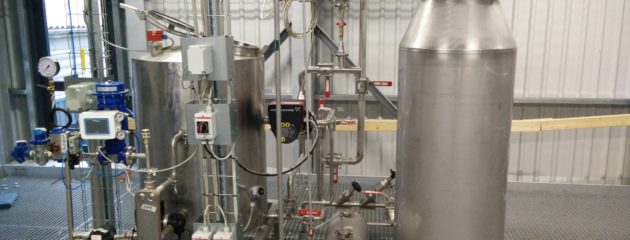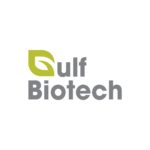
Press release: Unibio and Gulf Biotech to Deliver Qatar’s First Uniprotein® Plant
Uniprotein® Plant Enters Front-end Engineering Design Stage –
Final Stage Before Construction.
Unibio, the leading sustainable protein company, is pleased to announce that its strategic licensing partner, the Doha-based industrial biotech investor Gulf Biotech, has reached the final stage before the construction of the first single-cell protein (‘SCP’) plant in Qatar by entering the Front-end Engineering Design Stage (‘FEED’). Qatar is a country that is rich in natural gas resources but has little or no farmland or the ability to produce protein for its population or the surrounding region. By using our technology to produce protein locally, it helps to utilize their abundant resources, to directly enhance food security.
The plant will use Unibio’s U-Loop® technology, where methane is converted through continuous fermentation to produce Uniprotein®. The Uniprotein® produced in the plant will be used as a protein supplement in feed for fish and animals to supplement the deficit due to shortages of fish meal or soy. The production of Uniprotein® is highly resource-efficient and sustainable compared with the production of traditional protein. Relative to soy production, Uniprotein® uses no arable land and significantly less water. Initial production is estimated to be 9,000 tonnes of protein per year.
Gulf Biotech, represented by His Excellency Hitmi Al-Hitmi, has shown its commitment to using innovative technology and Qatar’s natural resources to tackle the highly pressing challenge of producing sustainable food for the world’s rapidly growing population. Gulf Biotech has completed their feasibility study on the viability of the plant. The FEED for the development of the plant is due to be completed by early 2023.
David Henstrom, CEO of Unibio commented:
“We are absolutely delighted with the progress made together with Gulf Biotech in reaching the FEED stage at what will be Qatar’s first single cell protein (‘SCP’) plant. We need innovators and visionaries if we are to provide food security for the world’s growing population in a sustainable way, especially at a time when the global cost of food continues to rise. Qatar’s abundance of methane makes it an ideal region to use our technology. I am confident that together with our partners, we will play a pivotal role in being part of the solution in Qatar and beyond and look forward to updating our investors on this FEED result in due course.”

His Excellency Hitmi Al-Hitmi, Founder of Gulf Biotech, said:
“Through the planning and the feasibility study we have had a professional and constructive dialogue with Unibio to develop the project and adapt the plant to Qatar conditions. We look forward to finalizing the FEED phase and starting the construction of the first sustainable protein plant in Qatar. We see enormous potential for the future of sustainable development of our business and achieving food security for the country by providing a sustainable and economically viable source for animal feed products.”
**Ends**
For more information please visit: www.unibio.dk or contact:
| Unibio A/S
Trine Leth, Head of Communications/Kommunikationsdirektør
|
+ 45 23 23 1965
tl@unibiogroup.com |
| St Brides Partners Limited
Ana Ribeiro / Isabel de Salis/Max Bennett
|
+44 (0) 7980 321 505
|
Notes to Editors
About Unibio
Unibio, the world’s leading sustainable protein company, uses microbial fermentation to convert methane, into high quality and sustainable protein for fish and animal feed. It is Unibio’s mission to deliver sustainable protein for livestock, aquaculture and the food of the future. Unibio’s technology is highly resource-efficient and sustainable. The process replicates the same process that happens every day in nature. Unibio is rolling out the technology globally.
About Gulf Biotech
Is a young company founded by His Excellency Hitmi Al-Hitmi to promote and invest in the industrial biotechnology sector. It is pleased to start its mission with an innovative and sustainable project such as using methane to produce animal feed protein using Unibio’s patented technology. This will help to put Qatar on the industrial map as a world leader in the production of animal feed proteins using methane.
About U-Loop® technology
The Unibio U-Loop® technology is a continuous-flow fermentation process allowing for a high conversion-rate, the high utilization of gases and economical production. Through its proprietary process, the gases are converted to protein that is subsequently treated and purified to a nutritious, high-quality protein. Unibio owns the intellectual property rights to the U-Loop® technology.
About Uniprotein®
Uniprotein® has a 70% protein content that compares with high-value proteins like super-prime fishmeal and highly concentrated soy products. The Uniprotein® product provides proteinic nutrient in animal feed. In pellet form, Uniprotein® has 11% water content, 70% protein content in dry matter and 85% digestibility for salmonids (and slightly lower for most other animals, as with other protein sources), yielding digestible protein content of 53%. This means that 1kg of Uniprotein® yields 530g of digestible protein.
Uniprotein® – a superior protein product
- a high protein content – above 70%
- a sustainable (alternative) protein
- usable as a direct supplement in animal feed compounds
- a highly digestible feed
- industrial scale production ready for roll-out
- single-cell protein inside Uniprotein® approved for animal and fish feed in the EU
- amino acid composition similar to fishmeal or soybean meal
- non-GMO
- free from pesticides, herbicides, & heavy metals, fertilizers, antibiotics
- easily traceable
- uniform product quality
- a long shelf life
- comes as powder or pellets
Uniprotein® will be sold through a network of distributors, as well as directly to large key accounts around the world.



